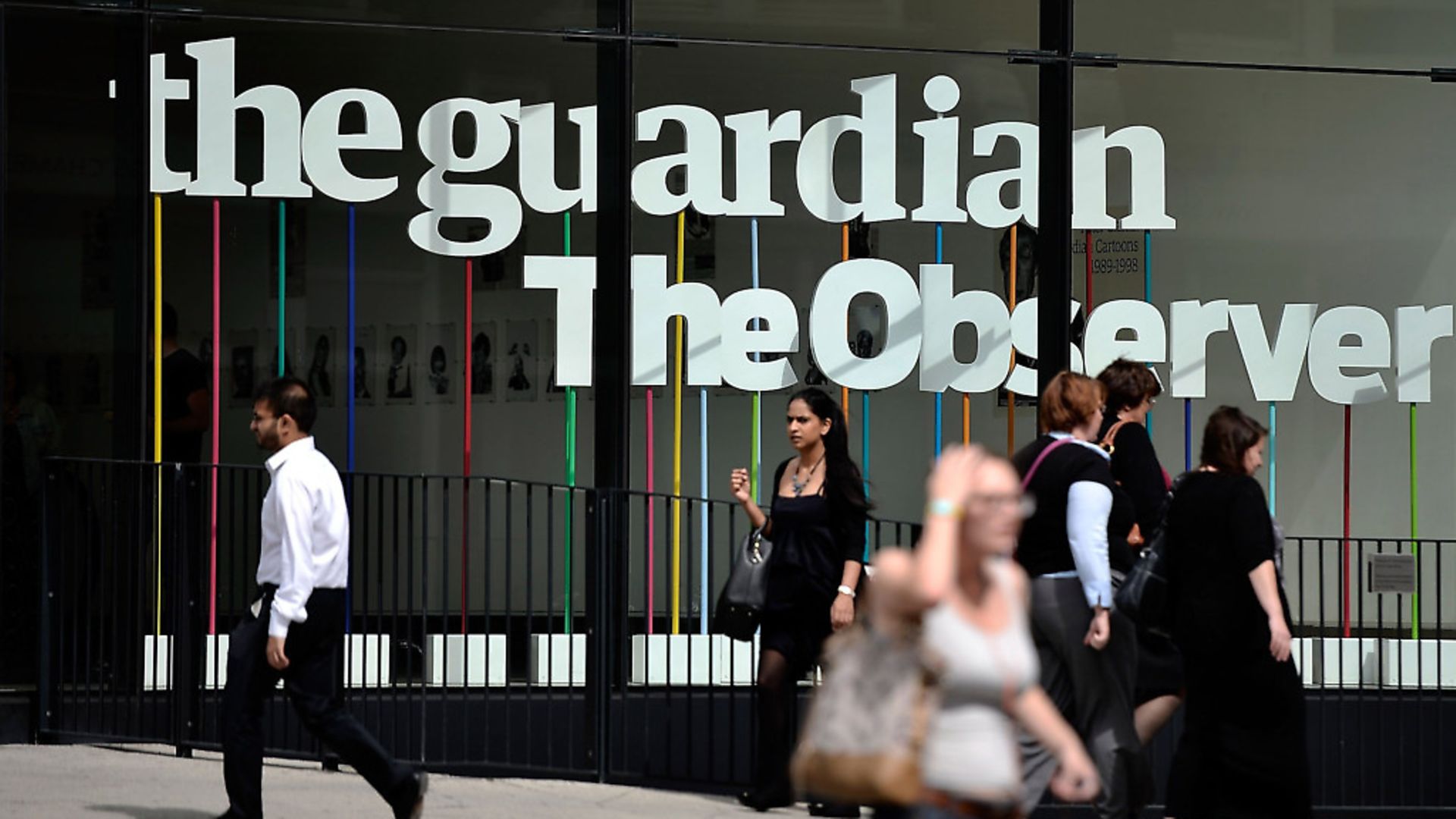The unreal becomes the familiar faster than we might ever imagine. To turn on the news in 2025 is to know that headlines about the disintegration of the US federal government as we know it will be present.
But from the vantage point of 3,500 miles away across the Atlantic, the early days of Trump’s second term don’t feel all that different to the first. There is frenetic activity, there is outrage, there is no shortage of posting on social media, and as the dust settles it’s never that clear whether all that much has changed at all.
What Trump is attempting in the early days of his second term goes well beyond what was even imagined – let alone would have been tolerated – even in the final days of his first. The people around him have changed, enablers in the place of blockers, the last vestiges of establishment Republicanism long gone.
Despite that, much of what garnered headlines for Trump has so far amounted to little. The much-vaunted tariffs and trade war with Mexico and Canada have been put on hold, at least for now. The freeze of federal government spending was hastily reversed once it seemed it might hit Medicaid. Elon Musk’s ongoing battle to get into the federal government’s most sensitive databases is playing out like a game of cat and mouse with the US courts – with even Trump-appointed judges ruling against him.
Against that backdrop, it is easy to miss what is happening with USAID, the independent body that oversees the USA’s overseas aid efforts. It has been the subject of widespread misinformation, legal fights, and wars of words. But something deadly serious is going on underneath it.
Overseas aid usually polls badly. It is little understood and even less well-liked. It inevitably contains splashy examples of esoteric spending, obvious government waste, and money that has likely been siphoned off due to corruption. It is, therefore, the easiest place for those looking to radically overhaul the workings of the US government to hone their playbook – to see where the limits are, what can be got away with, and what will stick.
The consequences of all of this chaos, though, are all too real. Thousands of USAID staff have been placed on leave, with the suggestion their jobs will soon no longer exist. At almost no notice, they are having to fly back to the US from around the world – their children pulled out of school with no notice, their housing disappearing, even their pets left behind.
Contractors and agencies around the world are finding their funding suddenly paused, their staff issued with ‘stop-work’ notices, and their future entirely in doubt. The recipients of the services they provide are in even more dire need. For a time, the provision of lifesaving HIV medicine to more than 20 million people across Africa was suspended, though this was resumed. Much more lifesaving work remains paused indefinitely.
USAID is, according to the official lines, to exist only in a vastly slimmed down role, with just a few hundred “essential” staff remaining – and to be defined out of existence, placed into the State department under Marco Rubio. Given the speed with which the complex networks of staff, contractors, and independent charities and NGOs is unravelling, the gulf left behind will be vast.
The simple truth is that in America, few care about the human consequences thousands of miles away – in one sense, this is what people voted for: America First, and America’s money spent on Americans.
That seems, within its own framework, reasonable if callous. Charity begins at home, after all: quite a few Trump voters have limits on how much they care about what happens outside of the USA, and that is their prerogative. But process matters, too, and the basic checks and balances of America’s government are being subverted to deliver something Trump should surely be able to do without taking such extraordinary measures.
USAID was created by legislation passed by Congress, and its continued funding was approved by Congress. The nature of the US budgetary process gives the president and executive very little discretion – if Congress passes a budget line of $X billion for a particular purpose, that doesn’t mean the executive can spend up to that much, if it likes. It means the executive is required to spend that much. The president has some limited powers to delay that spending, but these are extremely tightly restricted.
The operation of the federal government is creaking, bureaucratic, and incredibly tightly monitored because Congress has mandated that to be the case. It is kept on an extremely tight leash. Donald Trump has control of the House, Senate and White House, and so should be able to get meaningful reform through the proper channels. Instead, he is bulldozing through America’s basic constitutional principles to get reforms he should be able to do legitimately.
That should be enough to alarm his voters. There is all sorts of federal government spending that the authors of Project 2025 – now installed and confirmed in key administration roles – dislike that ordinary voters want to retain, including Medicare, Medicaid and social security. If the playbook developed for USAID works, it can be extended almost anywhere across the government.
Almost everything that has been done to slash USAID will be challenged in court, but the risk is that those cases soon become academic. By forcing the agencies to act now – rather than wait for the decisions to be confirmed by judges or approved by Congress – Musk and those around him are making them all but irreversible.
There are crucial aid agencies that can’t keep the lights on even for a few weeks without federal government funding. The same is true for independent media outlets funded by USAID, and all sorts of other organisations down the food chain.
Similarly, by relocating personnel back to the US, breaking leases, and doing whatever other damage they can, Musk and DOGE know that no court can easily clean up the deliberate mess. No-one on earth can unscramble an egg, after all.
For a time, this will feel like a triumph to Musk, to his online fans, and perhaps even to Donald Trump. That victory may be short-lived, even on Trump’s own terms. One does not need to care about the basic needs of humanity to wonder what would happen if most US aid spending disappeared overnight. Having even the most basic sense of realpolitik would suggest what the knock-on effects may be.
To put it simply: the US has not engaged in aid spending for decades out of the goodness of its heart alone, nor out of a sense of obligation. America has a knack for making sure its spending across the globe serves its own enlightened self-interest.
On the most basic of levels, that operates through how aid is delivered. Wherever possible, USAID buys American. If it has a programme tackling starvation, or feeding a refugee camp, it does not buy local grain – instead, it purchases grain from American farmers, and transports that using American ships wherever possible. During certain points in history, this has proven very useful for maintaining prices for US farmers during gluts in domestic demand.
Self-dealing aside, the US delivers aid in ways that serve US interests. Financial support and supplies have a way of keeping wavering governments onside – selling their strategic minerals to the US instead of one of its adversaries, cooperating with information on groups that would do the US harm, or otherwise engaging in some form of quid-pro-quo. The US wants much from the rest of the world to maintain its current standard of living, and its aid budget helps deliver that.
Beyond that, USAID is the vehicle of soft power – funding research into China’s belt and road, training and funding newsrooms in fledgling democracies, and more. Some of this work dated back to projects founded by the CIA, and has always been seen as questionable by its detractors – but the sudden withdrawal of such funding leaves a vacuum, and that will be filled.
Europe is somewhat in disarray. France is politically paralysed and Germany is in the midst of a bitterly divisive election that is all but guaranteed to deliver another weak and indecisive government. There is limited scope for the EU to step up and fill the gulf the US is leading behind – at least beyond the very basics of humanitarian aid.
China and Russia, though, will not hesitate to step in where it serves their own interests. America is quitting the field, in full view of its adversaries.
Donald Trump was elected to make America great again. Instead, within his first month, Trump and Elon Musk have marked the end of the American century.




